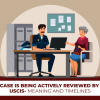
In the legal field, challenging a will can be a complex process. So, you cannot take it lightly.
Especially, while grieving over the loss of your loved one, it becomes emotionally painful to go through the legal intricacies of will change.
Moreover, in Australia, it is comparatively easier to challenge a will. Here, the law recognizes that not all wills are always fair and valid. So, it allows the nominee to challenge it.
Also, under very specific conditions, you can challenge a will in Australia. With proper evidence on the unfair asset division of the will, you can file for a contest.
So, if you are wondering how to challenge a will, we have got you covered. By reading this article, you will get to know everything about will contests.
Hi. In today’s blog, I will tell you how you can challenge a will. From understanding your rights to the steps involved in the process, you will get a comprehensive about the legal procedure.
Stay tuned!
Who Can Challenge A Will In Australia?
In Australia, not just anyone can contest a will. You must be an eligible person, which usually includes:
- A spouse or former spouse
- A de facto partner
- A child (including adopted and stepchildren)
- Someone who was financially dependent on the deceased
- A person who lived with the deceased and was in a close personal relationship
The eligibility criteria can vary slightly between states and territories, so it’s wise to seek legal advice based on your location.
Why Should You Challenge A Will?
There are two primary ways to challenge a will in Australia: contesting and challenging. While often used interchangeably, they have distinct legal meanings.
1. Testator Lacks Capacity For Will
It is important that the testator has the testamentary capacity for the will to be void.
This means that the person making the will needs to be of sound mind, above the age of 18, and not under the influence of any substance.
So, in case the testator lacks these capacities, you can challenge the will and file a case. And, your case will be based on the fact that the person was not in the right mind when signing the will.
2. Under Force Or Influence
If you find that the testator signed the will because of were forced by someone else. Making the will a manipulated document. Then, you can challenge the will.
However, you need to have ample evidence to prove that the person was under the influence of someone else. It is important to prove this to claim the will as void.
3. Fraud Or Forgery
Additionally, if the will was falsely signed or forged in any other way, then you can challenge its validity. Also, this way, you can penalize the forger of the will.
However, it is your responsibility to prove that the will is forged. Otherwise, the will’s validity will not be legally questioned.
4. Improper Execution Of The Will
With an improperly executed will, you can easily challenge its validity. Essentially, there are many rules for a will to be executed.
Some of these regulations include:
- The will must be in writing.
- Duly signed by the testator.
- There needs to be two witnesses for the will’s execution.
5. Family Provision Claims
One of the most common types of will contests is the family provision claims.
In this type of contest, if you are dependent on the testator, you can challenge the will, claiming that the estate is not adequately divided. So, you get to contest against the division in the will.
Moreover, you can claim this unfair division based on the maintenance and education you need for living your life. This way, you can challenge the will’s provision and get justice.
How to Start the Process Of Challenging A Will?
Challenging a will can be time-sensitive. Most states have a time limit—often 6 to 12 months from the date of death or probate—to lodge a claim.
Step 1: Seek Legal Advice
Your first step should be to speak with a solicitor who specialises in wills and estate disputes.
They’ll assess your eligibility, the strength of your case, and whether the estate has sufficient assets to make a challenge worthwhile.
Step 2: Obtain A Copy Of The Will
You have the right to request a copy of the will if you’re an eligible person or have an interest in the estate. This allows you and your lawyer to review its contents and begin building your case.
Step 3: Lodge A Claim
If your lawyer determines you have grounds to proceed, they’ll help you prepare and file the necessary documents with the Supreme Court in the relevant state.
This may include a formal Family Provision Application.
Step 4: Mediation And Negotiation
Most will disputes are settled through mediation rather than a lengthy court battle.
Your solicitor will negotiate with the executors or other beneficiaries to reach a fair settlement. Courts often encourage alternative dispute resolution to save time and costs.
Step 5: Court Hearing (If Required)
If no agreement is reached, the case will go to court, where a judge will decide the outcome. The court will consider factors such as:
- Your relationship with the deceased
- Your financial situation
- The size of the estate
- Any obligations the deceased had to you
- The needs of other beneficiaries
What Are The Costs And Risks Of Challenging A Will?
If you think that the legal proceeding with a contested will is going to be affordable, you are absolutely wrong. It is quite an expensive process.
And, it can leave a significant impact on your finances. So, don’t make an impulsive decision about challenging a will. Instead, think carefully with a clear head.
Additionally, you should know that the amount of the legal expenses for the case will be taken from the estate claim once you successfully get it.
However, if you lose the case, you will need to pay all the legal expenses of the other party from your own finances. So, you need to understand the risks before challenging a will.
Legal And Complex Process Of Will Challenge
Challenging a will in Australia is a serious legal step that requires a clear understanding of your rights and responsibilities.
Even though the process is complicated and expensive, the law is made to ensure that people who are unfairly treated by a will get justice.
So, if you are planning to challenge a will, make sure you consider all the risks and complex processes. Moreover, you can consult your lawyer to seek guidance on how to deal with it.
With their guidance, you can easily get justice by proving the invalidity of the will. Also, they can give you advice throughout the legal journey.
Read Also:











0 Reply
No comments yet.